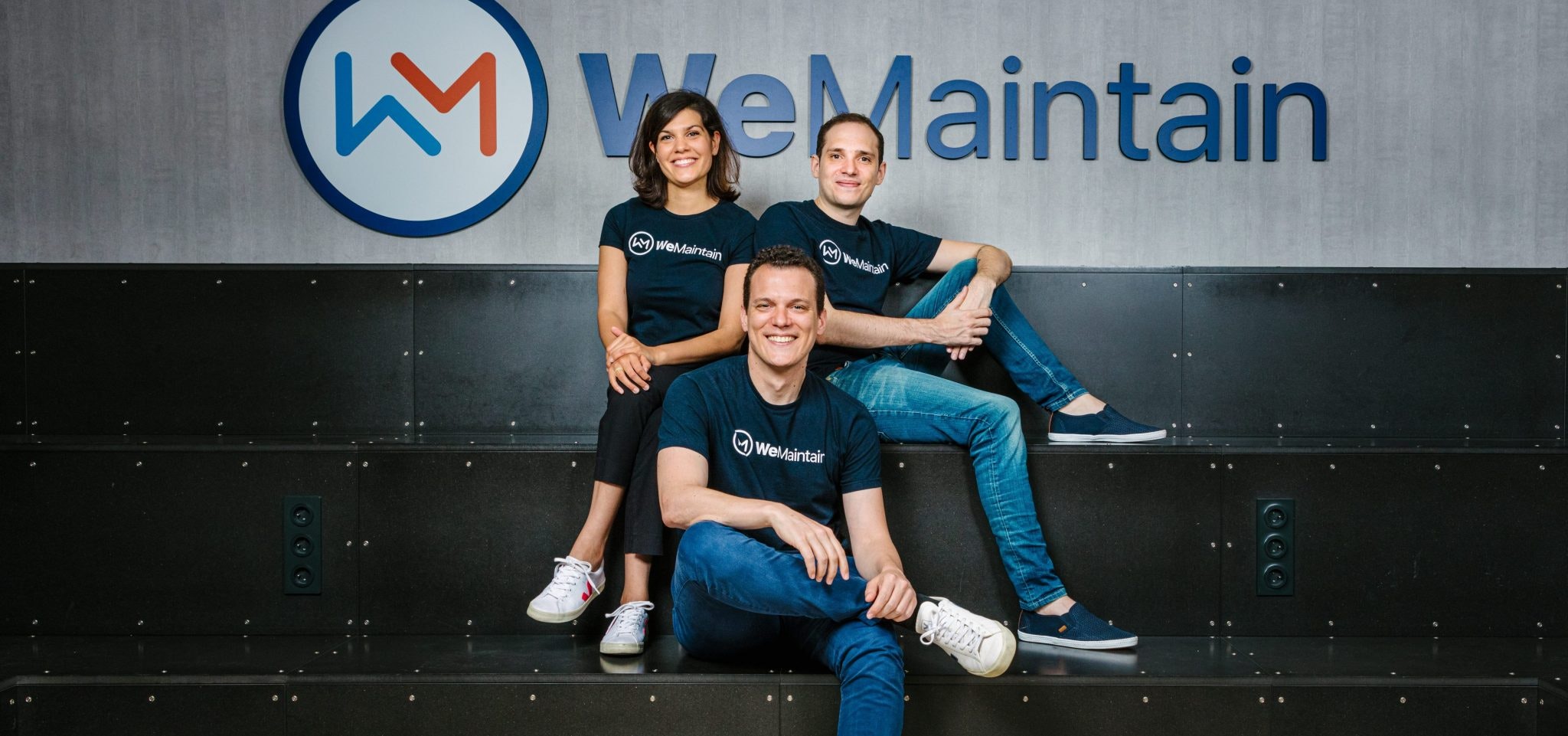There’s a revolution stirring in Barcelona (but not that one). It revolves around the ownership of data. ‘There is a new deal on data,’ says Francesca Bria, the woman charged with turning Barcelona into a truly smart city — a city that harnesses the power of technology and puts it to use solving the problems of its citizens. ‘We believe that data is a public infrastructure — like water, like roads, like the air we breathe — and it should be treated as such. It belongs to the citizens of Barcelona.’
This isn’t just rhetoric: Francesca Bria is taking data from big companies, and handing it back to the people who generated it. Vodafone, the provider of the city’s telecoms services, is now contractually obliged to give back the data it collects from the public, which will be published anonymously on the council’s open data portal. It wasn’t exactly easy to negotiate: ‘They resisted for over a year,’ Bria says.
For anyone who has ever considered swapping Google search for DuckDuckGo, or sighed when yet another mega corporation wins yet another massive contract with the government, or wondered how exactly the local council decides what it does with tax money, Francesca Bria is something of a hero. Alongside her day job, she leads DECODE, an EU project piloting new technologies that give people more control over their data. And she’s bullish about the role Europe can play in harnessing tech for society — and not just shareholders; rather than follow the market-driven US approach, or the state-driven Chinese model, she thinks ‘Europe can have a different way’.
Siim Sikkut, the Estonian government’s chief information officer, says that Bria had made Barcelona one of the front runners in the race to develop smart cities. In the ‘small club’ of CIOs, they were watching her progress very closely. ‘People do not just follow those who talk about it but those who do it. That is where Francesca is,’ he says.
‘People do not just follow those who talk about it but those who do it. That is where Francesca is.’ — Siim Sikkut
In the two years since she moved from London, where she was working for the innovation foundation Nesta, to Barcelona, she’s been cracking on with the task set her by the then-newly elected mayor Ada Colau: ‘I want to see technology and data that serves the people.’ Francesca Bria has pioneered a digital platform, Decidim, to involve citizens at all stages of local government decision-making, from proposing ideas to budgeting. She’s also ripped up the old, easily corrupted procurement procedures for city services and set out ethical standards for all government contractors. And, via the same online platform begun to experiment with a ‘data commons’, whereby citizens can choose whether to share their data, with whom and for what purposes.
Trying to create the ‘Creative Commons’ for Data
‘It’s a little bit like the Creative Commons for content,’ she explains, referring to the licensing system by which creators share their work for free with others, in a rights-preserving manner. ‘But we’re trying to do that for data.’
Citizens will be able to choose what kind of (encrypted, privacy-enhancing) data they want to share, with whom, and on what terms, via the city hall’s platform; for example, sharing information about the air quality on their street with the city hall — but not their insurance company; or sharing personal information with a local community organisation, but not the city hall.
‘We believe that data is a public infrastructure… and it should be treated as such.’
Francesca Bria hopes this transparency will help people push back against companies which manipulate information they gather about them (think, Facebook and Cambridge Analytica), and start a broader debate about who should profit from people’s data. ‘We are trying to create awareness amongst citizens about the public value of data — but also the fact that they should be in control, and have more democratic control of platforms.’
It will not, she realises, happen overnight. The pilot — which is part of the DECODE project — will run until April 2019; in the meantime she’s bringing together legal, economic and governance experts with citizens to discuss the issues at stake. And on the technical side, she anticipates ‘a lot of user experience work to make it simple and not invasive — unlike what we’re seeing with GDPR, where you have to click everywhere’. But the process towards changing the ‘deal on data’, she firmly believes, has to start now.
‘If we don’t want to have surveillance capitalism, as Shoshana Zuboff calls it, we have to change the model ,’ says Bria, referring to the current status quo of trading our data in exchange for free services.
Unlike some other initiatives, which enable people to trade their data for money, Bria wants citizens to see the power in their data to solve problems they face in the cities they live in. ‘Our approach is to create communal rights to data, and treat data as a common good. There’s a lot of public value that can be unlocked out of this data.’
Public data for public good
At the moment, the contract to run Barcelona’s bike sharing system is up for grabs. It might be won by a big company, or a local startup, but whoever wins will have to give the city back all the information it collects about how citizens are using the service. This data will then be open to any other organisation to use — to perhaps recommend new bike docking spots, or design an app that encourages people to exercise.
‘We don’t want one Uber, one Airbnb, one Google to run everything.’
‘We want to open up this data, in a privacy-preserving manner, and share it with local industries, startups, cooperatives, and the citizens themselves, so they can build the added value, the applications, on top of this data,’ says Bria. It’s still far from a perfect system: one source familiar with the urban mobility sector pointed out that the data the city currently shares is not always clean enough, or real-time enough (there are concerns over citizen safety regarding, for example, the precise location of buses), to be all that useful. But it is a start.
‘We don’t want one Uber, one Airbnb, one Google to run everything. We want competition on top of the data for services, and we want to give a chance to all this talent.’
To further help organisations of all kinds work with the city hall to improve services, Bria’s been setting up i.lab — a new innovation lab for urban challenges. ‘It’s not the typical incubator,’ she says (of which Barcelona has many, both public and private). ‘It’s very much mission-oriented.’
With i.lab, the city will set challenges (based on the needs of citizens and government department), which are effectively call-outs for solutions to social or urban problems it has identified. Earlier this year, it launched one focused on empowering women in technology. One of the winners, Fluttr, has created a platform which helps employers remove gender bias from their hiring process.
This is part of a wider movement to engage more startups, local cooperatives and universities. ‘One of our biggest objectives is to move from an oligarchy of providers to opening up to more companies, in particular the small ones,’ says Bria. Government contracts are now shared on a digital marketplace, where businesses of all kinds can see which bids are coming up and their budgets, prepare for them in advance, and submit proposals. 3,000 SMEs are currently participating, and Bria says more than ever before are winning contracts with the city.
Francesca Bria has also introduced standards around environmental impact, gender balance, minimum salaries, data ownership, open source and agile working methods; companies which score well on these aspects are prioritised. This has inadvertently helped smaller companies beat bigger organisations.
‘When you start looking at agile and open source, it’s mainly startups and smaller companies that have these skills; not so much the Microsofts or the IBMs. So even just changing the approach [to procurement] means you include newcomers, and not the usual suspects.’
- Also read: The quest to reclaim our data
Agile civil servants
It’s not just startups who are following agile working methods in Barcelona; Bria’s also introduced them to the city hall’s civil servants. Unsurprisingly, it took some time to bring everyone onboard. ‘At the beginning, people thought, “Oh my god, this Italian from London must be crazy,” but I just kept going, and began winning hearts and minds,’ Bria says. She took teams from all departments — legal, procurement, HR, technology — through a six-month transformation process. Their buy-in was key to the success of her mandate, she says: ‘If you don’t do it with the machine, with the public servants, it’s just beautiful ideas which you won’t be able to implement. You have to do it with them.’
The process also helped cut through the organisation’s stodgy hierarchy. ‘It’s an equaliser. Through the workshops, I saw younger people taking a lead, owning the products and the process, and shaping new teams,’ says Bria. Some of them now lead the city hall’s open source group — more than 80% of its IT budget is now spent on free and open-source software. ‘This way of working — publishing code on GitHub, documenting everything, making it more transparent, being user-centric — it just makes so much sense.’
‘It’s like a breath of fresh air for the public sector. People actually like it.’
Where tech meets the real world
There is, however, one area where startups and tech companies can most definitely learn from Barcelona’s city hall, with its overwhelmingly female leadership team. The gender balance in the tech industry in Spain is as dire as anywhere else (18% of tech employees are women) — and Francesca Bria is launching initiatives to improve the balance.
‘There is no digital revolution without a feminist revolution.’
One problem, she thinks, is that young women often don’t recognise the social impact that technology can have. ‘One of the problems we see with this technology built in Silicon Valley by white men is that it doesn’t consider psychology skills, ethnography, economics, environmental impact — all of these things that make technology fit for society.’
‘And that’s where women are going to be very much more present in the technological revolution. Here, we’re very feminist, and we say there is no digital revolution without a feminist revolution.’
To show that ‘tech is not just tech’, Barcelona is promoting STEAM programmes, running public makers spaces and innovation challenges with girls that encourage them to use tech to solve social and environmental problems. The city hall is also working with some of Barcelona’s most prominent tech conferences, such as Mobile World Congress and Smart City Expo, to improve the gender balance of their panellists.
The role Europe can play
Much of the work Francesca Bria is spearheading in Barcelona is being shared with other cities in Europe — and further afield. Helsinki, for example, has started using the Decidim platform (its users are apparently providing valuable feedback), while Barcelona is also running joint challenges with cities such as New York and Amsterdam around housing and mobility problems.
Bria says there’s a lot of noise about cities ‘competing to get startups, but it’s not really like that’.
‘For us, cooperation is so much better because cities need critical mass, and if we do it together it’s more powerful. For Europe, this is absolutely essential — this is the European model in fact,’ says Bria.
Technology can’t be detached from society, she emphasises. And this is where Europe can play a big role in setting security, ethics, privacy and citizen rights standards for technology.
‘Technology will influence the next generation of healthcare, education, transportation systems, the basic welfare state. It is reshaping the system. But this conversation — which is at the core of the political, social, and economic model of Europe — has been left to technology experts. If Europe doesn’t want to face it, we’re just going to have healthcare with Google, transportation with Uber, and SoftBank. You can forget about your AI capabilities and all of that.
‘So what is the European model? What are we doing with this data, with this reputation, that we constantly collect? How are we making sure that we combine those capabilities with the social European model, and what is it? So we need to get on! And basically show that Europe can have a different way.’



